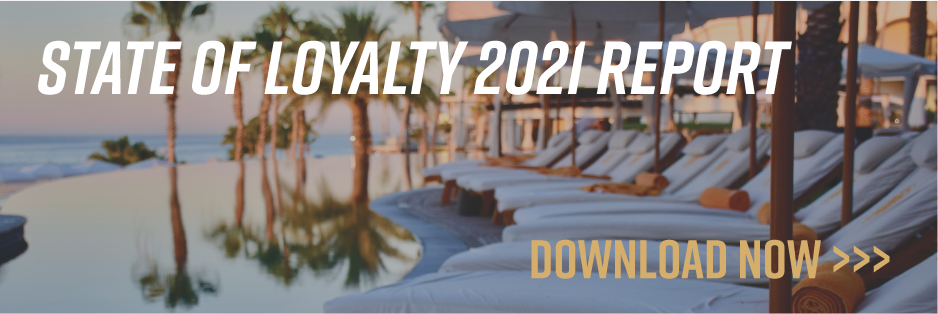In our recently released State of Loyalty: 2021 Hotel Ancillary Report, we discussed how consumers, particularly millennials and younger generations, are increasingly seeking opportunities to live their values through their daily experiences and purchases. This is a trend that has been steadily growing since the widespread adoption of social media in the late aughts - when brands became more visible and accessible to average consumers - and has peaked in the last year or two.
Consumers now are more informed and have more choices than ever before, and many are choosing to exercise those choices by supporting brands that align with their own social, political, or philanthropic values. One prime example of this is sustainability. Sustainable travel has been a hot topic for the past several years (we highlighted it in our 2019 State of Loyalty report), but 2020 and 2021 just may be the tipping point in its widespread adoption. In our State of Loyalty Report, we cited an American Express Travel survey that found that 68% of respondents “are trying to be more aware of sustainability-friendly travel brands to support.”
The stats don’t end there:
- According to Forrester, “68% of US consumers say that a company’s social responsibility reputation has at least some influence on their purchasing with that company. 41% of US consumers want to buy from a company associated with social, environmental, and political ideals.”
- iSeatz asked respondents in Phocuswright’s Annual U.S. Consumer Travel Report “When you plan your travel and choose which brands to use, how important is using sustainable means of travel in terms of the impact on the environment, culture and economies of the destinations you visit?” 91% of younger travelers (age 18-34), who represent 40% of travelers, said Sustainable Travel was at least “Slightly important.”
There are many ways that hotels can improve their sustainability practices, both to reduce their environmental impact and win over customers. One is to offer carbon offsets to their guests. The concept of carbon offsets is not new - airlines have made these available with flight purchases for over a decade - but it’s still a rarity in other travel sectors, including hospitality. It’s even more uncommon to see full loyalty-integrated offsets (both earn and burn opportunities) in either hotel or airline reward programs. SH Hotels made news this year when it announced point redemption for offsets. And Melia Hotels launched their “The Planet We Love” program just a few weeks ago, which allows members to use points to donate to environmental projects through U.N. Climate Change.
With travel surging, and Millennials driving post-pandemic travel recovery, it’s a great time for hoteliers to integrate carbon credits into their loyalty scheme. Not only is it good for the planet, it’s good for business too. In that same Phocuswright Consumer Travel Report mentioned above, we also found that high-status loyalty members are significantly more likely to rate sustainable travel as extremely important. And iSeatz has seen a 50% increase in take rate when users can use points toward carbon offsets.
It’s a win-win-win, for your brand, your guests, and Mother Earth.
Want to get more insights and updates from iSeatz? Sign up for our newsletter!
You can also learn more about iSeatz by reaching out to marketing@iseatz.com.


